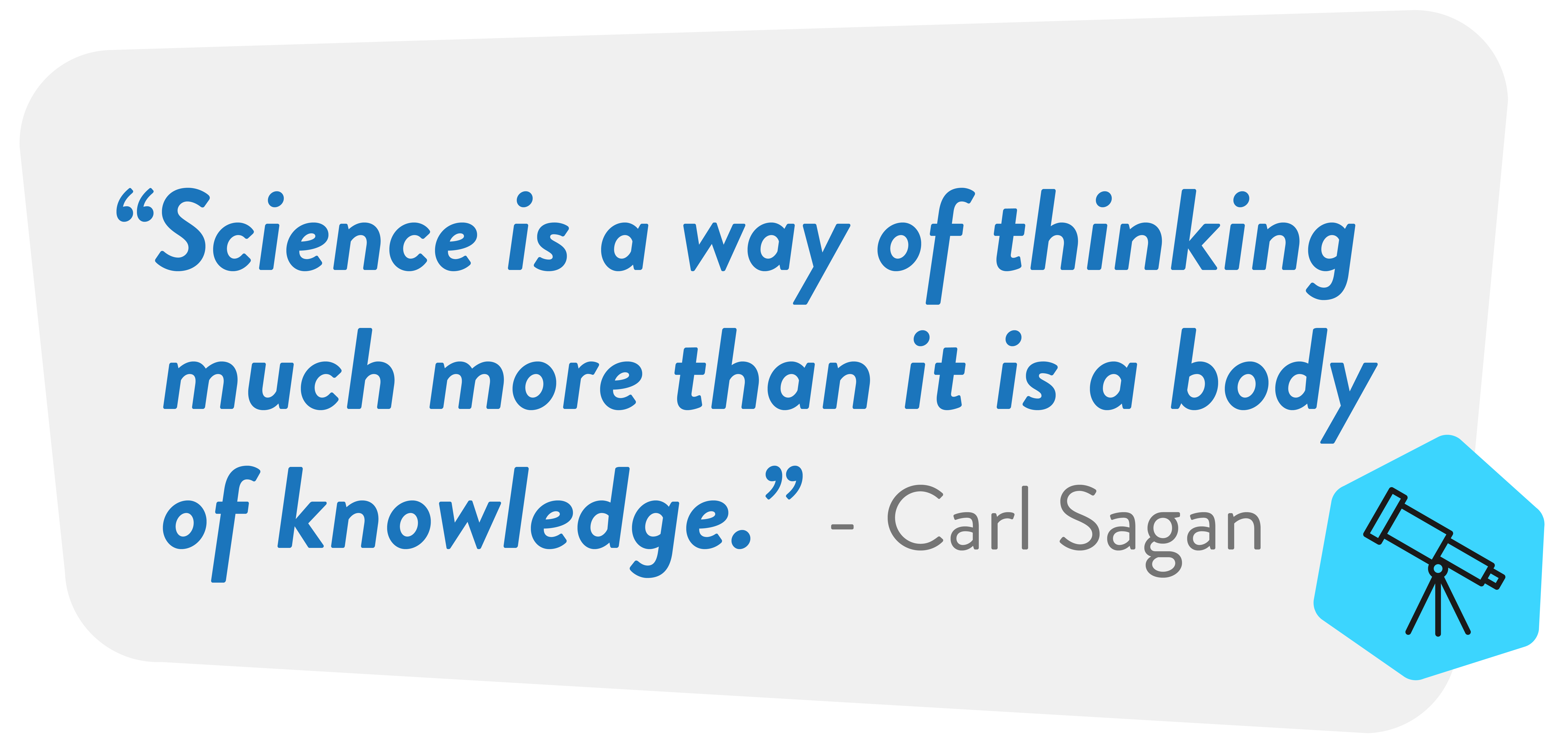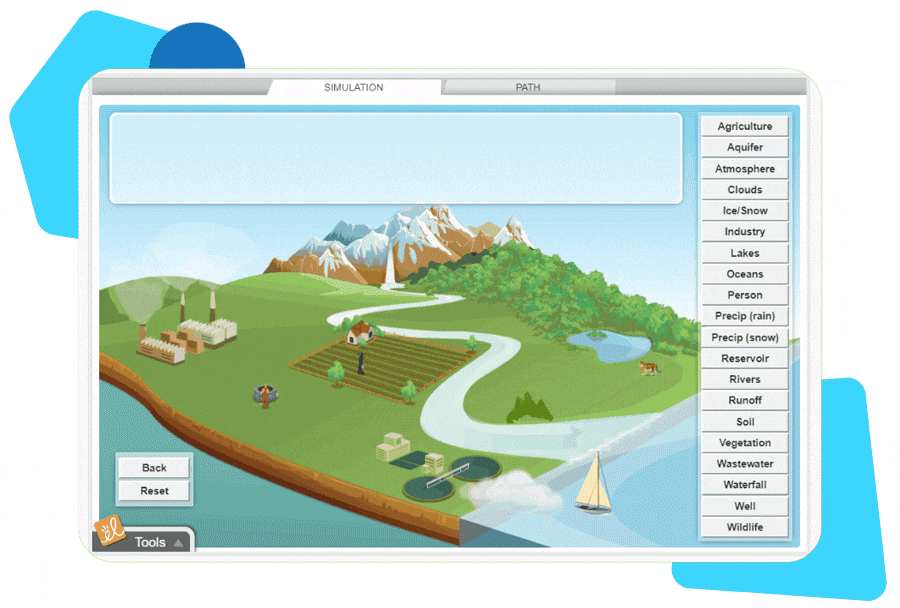
What does it mean to have a scientific mind?
Wondering if you have a scientific mindset? The answer is yes! We all use scientific thinking every day. It’s not about experiments in a lab. It’s measuring the ingredients for the perfect fruit smoothie. It’s evaluating the outside temperature and wind chill when choosing whether or not to wear a coat. It’s exploring the trail during an afternoon run while calculating your speed and distance. A scientific mindset is observing, experimenting, and analyzing as we move throughout our daily lives. Some may call it a sense of wonder or a keen awareness. Whatever you call it, having a scientific mindset is essential for all of us.
The bigger question is this: how can we cultivate a scientific mindset with our students? As Carl Sagan once said, “ Science is a way of thinking much more than it is a body of knowledge.” Scientific reasoning is based on information and evidence. It allows us to question and test theories. Fostering an appreciation for observation and experimentation is all about exposure. When students are immersed in learning experiences that allow for critical thinking, they’re more likely to engage in trial and error, knowing that mistakes are also opportunities to learn.

Classroom connections for scientific thinking
The classroom is the perfect place for cultivating scientific mindsets. Regardless of the content area, scientific thinking is necessary for success. Encouraging students to question and examine brings that scientific mindset to every inquiry-based classroom. Reading and comprehending a mystery requires the ability to infer and draw conclusions. Understanding the connections between landforms and settlements in social studies involves data and evidence. Applied technology classes use scientific thinking for designing and building projects.
Students aren’t afraid to use technology as a tool for learning either. In fact, many thrive on it. Implementation of edtech products, like ExploreLearning Gizmos, can empower students to access information in a variety of ways as they dig deeper into the subject matter of any class. This type of active learning encourages students to ask questions, conduct research, and explore new ideas. And that bolsters a scientific mindset!

Why is scientific thinking so important?
Curiosity and motivation create lifelong learners. Students who can recognize and understand connections in the classroom can also see them in the real world. They’re not afraid of the productive struggle for answers because they know the process of scientific thinking. Those same skills bring excitement for discovery in the world of STEM and fearlessness for taking academic risks. They’re ready to dive into higher-level science classes and consider careers in STEM.
That’s a great thing because the United States needs more STEM workers in the future. Developing an interest and preparing for STEM careers is especially important for those who have been underrepresented in those fields. Guiding students to develop information-seeking behaviors supports natural curiosity and deeper learning. It just takes a dose of skepticism, an open mind, and a drive for investigation to help students think like scientists. Who knows where a scientific mindset could lead your students in the future? The possibilities are endless.

Bring it all together with Gizmos
Curiosity and a thirst for knowledge often take students beyond their environments. So, how can teachers promote critical thinking for concepts outside of classrooms? Simulations are the answer, and Gizmos hold the key. Studies show that simulations are powerful tools for effective STEM instruction. They deliver concepts to students and encourage them to contemplate the implications of different scenarios, from genetics and engineering to oceans and ecosystems. ExploreLearning’s award-winning library of Gizmos contains hundreds of highly visual, dynamic models and simulations of important scientific concepts. Students are actively engaged and involved in thought-provoking, inquiry-based learning opportunities.
Gizmos are more than just simulations. Their design fosters active learning by doing. They allow students to explore concepts, apply knowledge, and expand on experimentation and results all in one place! Gizmos interactive STEM Cases even task students with solving real-world problems as STEM professionals. Gizmos don’t stop with scientific thinking, though. Students build communication and writing skills as well.
The data is in! Gizmos work. They are proven to build deep conceptual understanding in STEM with more than 550 virtual, interactive simulations– and counting– all aligned to the latest standards. Gizmos help educators deliver lessons that actively engage and involve students in thought-provoking, inquiry-based learning with research to back it up. Cultivating scientific mindsets for students in grade 3-12 classrooms is possible. Stop dreaming about an edtech product that is more than just a simple simulation. You’ve found it in Gizmos.
